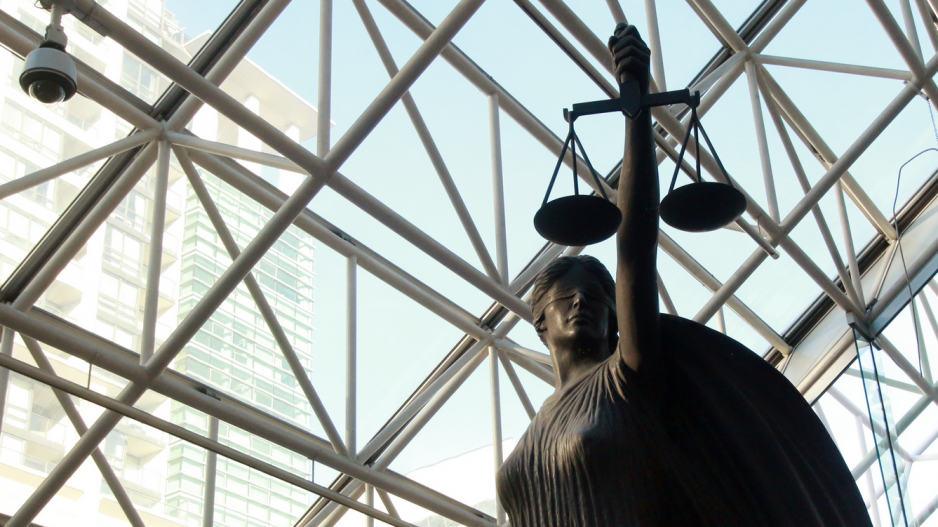A Vanderhoof, B.C., businessman and his companies have been found to have knowingly participated in dishonest conduct by a senior manager at another company. The end result: 20 per cent liability for the fraud that resulted.
Shane Leslie Braddick was a senior management-level employee of Optimil Machinery Inc., a family-owned business in Delta. Over the course of 15 years, Braddick carried out a scheme to defraud Optimil of about $3 million, according to a recent B.C. Supreme Court decision.
“The scheme evolved over time, and took on several forms. It essentially revolved around orders for industrial computer parts. At various times, Mr. Braddick caused Optimil to order parts it did not require, sold surplus parts from Optimil’s inventory, and approved payments for parts that Optimil never received,” reads the decision, penned by Justice Bruce Elwood.
Optimil builds “large and complicated industrial machines and control panels,” with each project custom-made to meet the needs of individual customers, at prices of $1 million to $10 million, according to the decision.
When Optimil gets an order, its controls group designs the product and lists all of the parts needed, which forms the basis of the quoted price. Any additional parts needed afterwards, for the most part, come out of Optimil’s own pocket.
Braddick was originally hired as a manager of robotics and automation in 1998. By 2005 his responsibilities included management of the controls group, giving him the authority to order parts and to instruct employees to order parts, as well as confirming receipt of parts, signing packing slips and authorizing payments to suppliers.
Braddick himself settled with Optimil ahead of the trial, leaving Elwood to decide on the case against the remaining defendants: Vanderhoof’s Robert Lew Taylor and his companies, Amark Services Ltd. and RL Taylor Co.
Taylor’s companies weren’t authorized suppliers for parts, though he did supply some parts to Optimil, and Optimil said he provided “good service.” Its issues came with “anomalous” orders and thefts found in its internal investigations.
Optimil alleged Taylor and his companies were “active and knowing participants” in the schemes, including issuing invoices and packing slips for parts Braddick ordered.
“He sold parts that Mr. Braddick stole from Optimil. He collected payments from Optimil and others, paid Mr. Braddick large sums of cash and kept a share for his own benefit. He also failed to remit the goods and services tax on the payments he collected from Optimil,” Elwood wrote of Optimil’s allegations against Taylor.
Optimil calculated losses from fraud and theft amounting to $3.4 million in relation to Braddick’s orders with Taylor’s companies, and another $27,406 in false GST billings.
Taylor, however, denied knowledge of the fraud or theft, claiming he only acted on Braddick’s word, believing him to be a “legitimate supplier of parts for Optimil.”
“He claimed to have been deceived by Mr. Braddick on many aspects of the transactions, including the source of the parts and the purpose of the payments to Mr. Braddick,” Elwood wrote.
Elwood found Taylor knowingly helped Braddick breach his fiduciary duties to Optimil and that he “knew, from the outset, that Mr. Braddick’s conduct was dishonest, even if he did not know he was participating in the fraud by Mr. Braddick.”
He further found Taylor committed fraud for the GST claimed in his invoices to Optimil.
Elwood further dismissed a counterclaim by Taylor for five invoices RL Taylor Co. submitted to Optimil that the latter company didn’t pay after it discovered Braddick’s fraud.
In a separate countersuit filed by Taylor, which was not heard along with the remainder of this case, Taylor claimed damages against Braddick for fraud, breach of fiduciary duty, breach of trust and defamation.
Elwood found Taylor was 20 per cent liable for the fraud and theft schemes, for a total cost of $686,194 for knowingly assisting Braddick in his breach of fiduciary duty and a further $27,406 for fraud related to the GST claims.



